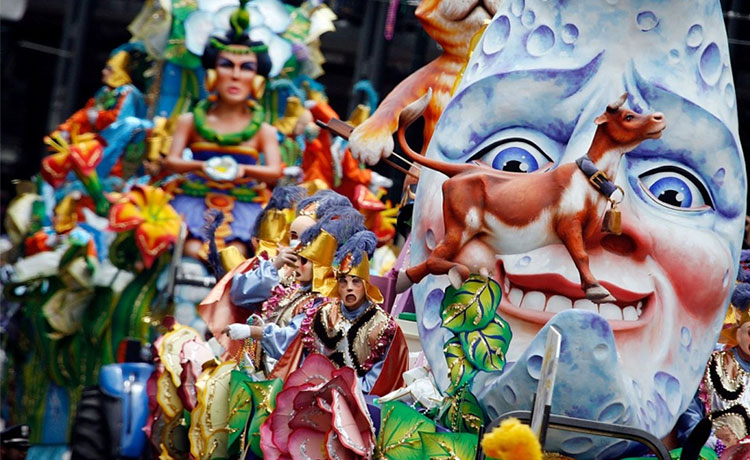
The Best Places in Greece to Enjoy a Carnival
Greece is famous for many things. Classical architecture, magnificent seaside, delicious food and beautiful nature are some of them. But, if you come to Greece, you can combine these beauties with various public events. The country isn’t the first association related to festivals that comes in mind. Still, it is the country of festivals indeed. Read on to learn what the best places to enjoy a carnival during your stay among the Greeks are.
Patrino Carnival, Patra
The Patrino Carnival is the most celebrated carnival in Greece. It takes place throughout January and February in the city of Patra. Inaugurated in the 19th century, it became one of the largest such events in Europe in the 20th century.
The Patrino features many colorful floats, masquerades and high spirits. Here, you will see people wearing outfit characteristic to the opposite sex. As you walk the city’s streets, many decorated coaches, carts and other vehicles will cross your path. More so, join various dances and performances in clubs and taverns. And, of course, don’t miss special events, such as the wax eggs war and the chocolate war.
Carnival of Xanthi, Xanthi
The Carnival of Xanthi is another public event taking place in February. This carnival focuses on the regional culture and traditions and involves a lot of dining and shows. Folklore, theatrical, dancing and other performances take place during the carnival. However, the crowning event is the Great Carnival Parade, taking place by the end of the festivities. It involves the burning of the Carnival King and the fireworks as the closing event.
Bourani, Tyrnavos
You may hear about this widely-celebrated event as the Celebration of Fertility. And Tyrnavos stages one of the most popular Bourani carnivals in Greece. The Celebration of Fertility is a sex-teasing event, characterized by a wide use of phalluses. Bourani introduces the beginning of Lent and only takes place on “Dirty Monday.”
